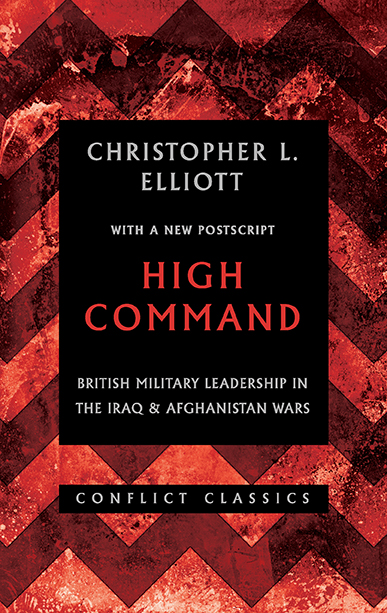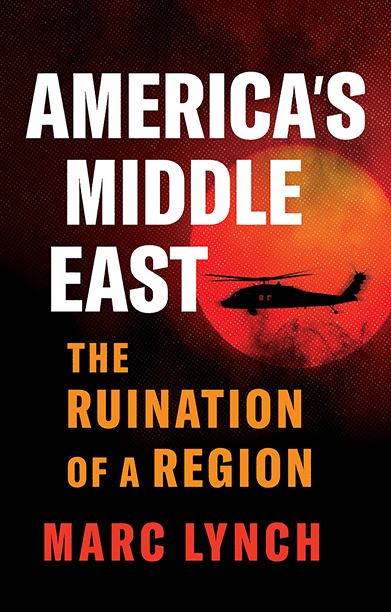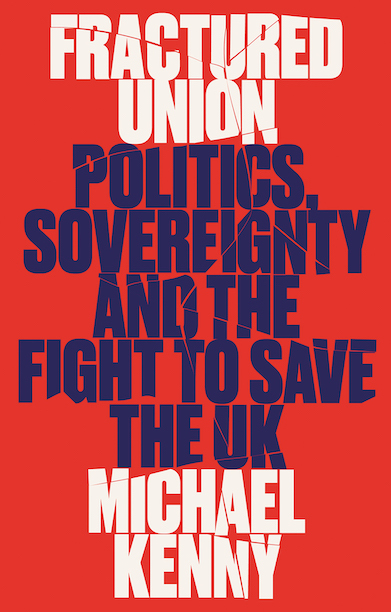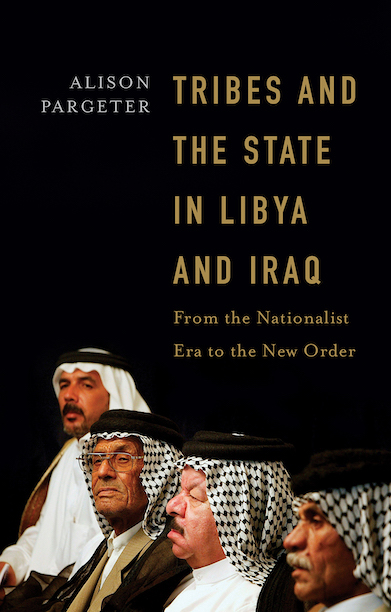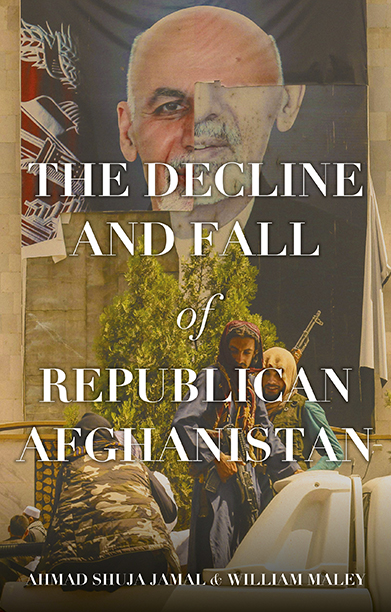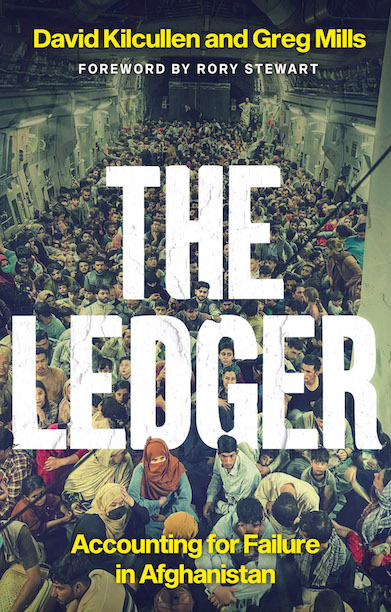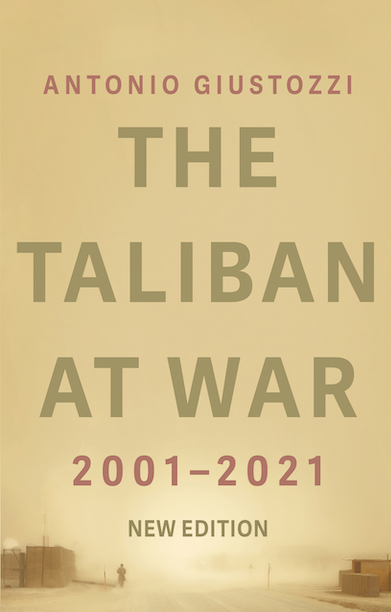High Command
British Military Leadership in the Iraq and Afghanistan Wars
Part of the Conflict Classics seriesWith a new Postscript on the Chilcot Report
‘A study of what’s wrong at the MoD … in terms that Evelyn Waugh could not have bettered.’ — The Spectator
Description
From 2001 Britain supported the United States in wars in Iraq and Afghanistan. ‘Victory’ in such conflicts is always hard to gauge and domestic political backing for them was never robust. For this, the governments of Tony Blair and Gordon Brown were held responsible, and paid the price, but the role played by the High Command in the Ministry of Defence also bears examination. Critics have noted that the armed services were riven by internal rivalry and their leadership was dysfunctional, but the truth is more complicated.
In his book Elliott explores the circumstances that led to these wars and how the Ministry of Defence coped with the challenges presented. He reveals how the Service Chiefs were set at odds by the system, almost as rivals in the making, with responsibility diffuse and authority ambiguous. The MoD concentrated on making things work, rather than questioning whether what they were being asked to do was practicable.
Reviews
‘Britain will lose more wars unless military chiefs stop agreeing to impossible missions after a decade of errors in Iraq and Afghanistan, a new book warns. . . High Command, based on interviews with many of those at the helm of the military and the Ministry of Defence from the turn of the century, also identifies fundamental flaws inside the ministry that set the conditions for failure. . . Offering a rare insight into the turmoil within the armed forces during one of the most critical decisions of the two wars — the deployment of British forces to Helmand in 2006 when they were still fighting in southern Iraq.’ — Deborah Haynes, Defence Editor, The Times
‘Long overdue, High Command is a study of what’s wrong at the MoD, and an excellent primer for the Chilcot report. … Elliott sets out an agenda for reform as well as a narrative. He does so in terms that Evelyn Waugh could not have bettered.’ — The Spectator
‘It is the responsibility of the chiefs of staff to speak truth to power when Britain goes to war, but until now they have been accorded little attention when considering the Iraq and Afghanistan conflicts. Christopher Elliott has put that right, combining an insider’s perspective with shrewdness, wit and strategic insight. If we are to learn lessons from the last decade, this is where to begin.’ — Sir Hew Strachan, Chichele Professor of the History of War, University of Oxford
‘A clear and balanced account of the strategic direction — and lack thereof — in recent British operations. Elliott brings depressing evidence of gross institutional failure and indicates what should be done to rectify it.’ — General Sir Rupert Smith KCB DSO OBE QGM, former Deputy Supreme Allied Commander Europe
‘Enthralling, gripping and brutally honest … With a gentle, skilful hand Elliot guides the reader through the complex world of “High Command” to explain why a valiant and well-trained military force was not afforded the proper conditions to succeed — neither in resources nor in leadership at a political level.’ — General Jack Keane, former Vice Chief of Staff, United States Army
‘Elliott has provided the ideal primer for the Chilcot report, whenever it arrives. One of his best suggestions is the need for better education for senior offices, to the level of their American peers, particularly in human and political geography.’ — Robert Fox, The World Today
‘A diplomatically couched bombshell of criticism of UK decision-making and the conduct of war. Defence ministries the world over should reflect on Elliott’s trenchant analysis and wise advice, lest lives and treasure continue to be wasted in ineffective or even counter-productive campaigns.’ — Professor Beatrice Heuser, University of Reading
‘An outstanding book on British military leadership in the Iraq and Afghanistan wars.’— Changing Character of War, Oxford University
‘Elliott is particularly well qualified to shine a light on the performance of the “High Command” and does so with highly rigorous analysis, shrewd observations and perceptive insights. A compelling and disquieting account.’ — Lieutenant General (retired) Sir John Kiszely KCB MC, former Director of the Defence Academy of the United Kingdom
‘An impressively original work. Elliott authoritatively describes the blindness and blunders committed by Britain’s politicians, civil servants and the military before and after the invasion of Iraq and exposes how the lessons of failure in Iraq were ignored during the venture into Helmand’ — Tom Bower, writer and journalist
‘A very welcome present this Christmas was a copy of Major General (Retd) Christopher Elliot’s book, High Command, about British Military Leadership in the Iraq and Afghanistan Wars. …An extremely well written and thoughtful book it examines the causes of these wars and how the Ministry of Defence coped with the challenges that they presented.’ — Salisbury Journal.
‘[Elliott] is meticulous in setting out … who was who in key military positions during this period, the structures within which they were working and, based on interviews, their opinions on how “the system” worked … Also, commendably, he concludes with some practical suggestions as to how the system might be changed for the better.’ — Asian Affairs
Author(s)
Christopher L. Elliott retired from the British Army as a Major General in 2002. This book was written over two years while Elliott was a research fellow at the universities of Oxford and Reading.
